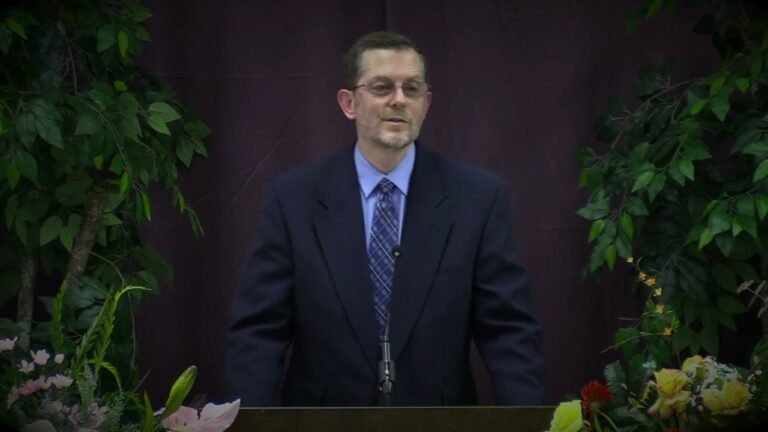Navigating the Intersection of Christ and Culture
In a world where diverse beliefs and values intersect, the relationship between Christ and culture becomes increasingly significant. This dynamic interplay shapes not only individual lives but also communities and societies at large. As we navigate the complexities of modern life, understanding how Christ’s teachings can inform and transform cultural expressions offers a powerful lens through which to view our shared humanity. This exploration invites us to reflect on the ways faith can engage with, challenge, and enrich contemporary culture, leading to a deeper dialogue about purpose, morality, and connection in today’s rapidly evolving landscape.
How does Christ influence contemporary cultural values?
Christ influences contemporary cultural values by promoting love, compassion, forgiveness, and social justice, shaping ethical norms and community relationships in diverse societies.
How are Christ and Culture related?
The relationship between Christ and culture is profoundly demonstrated through the concept of the incarnation. By becoming man, Christ not only entered the human experience but also embraced the diverse cultural contexts of the people He encountered. This willingness to dwell among us signifies a deep connection to the various traditions, languages, and practices that shape our lives.
In this light, Christ’s involvement with culture is not merely passive; it reflects an active engagement with the world. He sought to understand and relate to humanity, bridging the divine and the earthly. This relationship invites believers to see their own cultural contexts as avenues for expressing faith and sharing the message of love and redemption, fostering a dynamic interplay between Christ and the diverse cultures of the world.
What are the five perspectives on Christ and culture?
Richard Niebuhr’s influential work, “Christ and Culture,” presents five distinct paradigms that explore the relationship between Christianity and the surrounding culture. These paradigms—Christ Against Culture, Christ of Culture, Christ Above Culture, Christ and Culture in Paradox, and Christ the Transformer of Culture—offer a framework for understanding how faith interacts with societal norms and values. Each perspective provides a unique lens through which believers can navigate their spiritual journey amidst cultural influences.
The impact of Niebuhr’s paradigms extends far beyond his time, continuing to shape contemporary discussions on faith and culture. By examining these views, individuals can better articulate their stance on how they engage with the world around them, whether by opposing cultural trends, embracing them, or finding a balance between faith and the cultural context. This ongoing dialogue remains vital as Christians seek to live out their beliefs in an ever-evolving society.
What is the relationship between Christ and culture as a paradox?
The paradox of Christ and culture highlights the tension between the inherent corruption of human culture and the necessity of engaging with it in our daily lives. This perspective emphasizes that while culture can often lead us away from righteousness, it is also the very environment in which our faith is tested and expressed. As believers, we navigate the intricate balance of faith and doubt, sin and righteousness, law and grace, constantly striving to embody Christ’s teachings while confronting the complexities of the world around us. This dynamic interplay invites a deeper reflection on how we live out our beliefs in a flawed yet essential cultural landscape.
Bridging Faith and Modern Life
In today’s fast-paced world, the challenge of integrating faith into daily life has never been more pressing. Many individuals seek a deeper connection to their spiritual beliefs while navigating the complexities of modern society. This quest often leads to a re-evaluation of values and priorities, encouraging a harmonious blend of tradition with contemporary living. By fostering a mindful approach, individuals can discover ways to embody their faith in practical, meaningful actions.
Technology has transformed how we practice and express our beliefs, making spirituality more accessible than ever. Online communities and resources facilitate discussions that bridge generational gaps, allowing diverse perspectives to flourish. Through virtual gatherings, podcasts, and social media, individuals can share their journeys, inspire one another, and create a sense of belonging that transcends physical boundaries. This digital landscape empowers people to explore their faith in a way that resonates with their everyday experiences.
Ultimately, bridging faith and modern life is about finding balance and authenticity. It invites individuals to reflect on their principles while embracing the opportunities that contemporary life offers. By cultivating a practice that honors both their spiritual heritage and the realities of today, people can lead more fulfilled lives. This integration not only enriches personal well-being but also fosters a compassionate community, where faith becomes a guiding light in an ever-changing world.
Embracing Diversity Through a Christian Lens
In a world rich with cultural variety, embracing diversity through a Christian lens invites us to recognize the beauty in differences as reflections of God’s creation. Each person, with their unique background, experiences, and perspectives, adds a vibrant thread to the tapestry of humanity. By celebrating this diversity, we not only honor our Creator but also cultivate a deeper understanding of love, compassion, and unity that transcends societal divisions.
The teachings of Christ encourage us to see beyond our own experiences and extend grace to those who may think, believe, or live differently. This call to inclusivity challenges us to build bridges rather than walls, fostering communities where everyone feels valued and respected. Engaging with diverse viewpoints enriches our faith, prompting us to grow spiritually and to embody the love of Christ in practical ways, whether through service, dialogue, or advocacy.
Ultimately, embracing diversity allows us to reflect the heart of Christianity in a world that often seeks to divide. It invites us to practice empathy, challenge biases, and pursue justice for the marginalized. As we open our hearts and minds to the richness of different cultures and traditions, we not only fulfill Christ’s command to love one another but also become instruments of peace and hope in our communities.
Transforming Society with Gospel Principles
At the heart of societal transformation lies the profound power of gospel principles, which advocate for love, compassion, and justice. These timeless values inspire individuals and communities to foster meaningful connections, uplift the marginalized, and promote equality. By embodying these teachings in our daily lives, we create a ripple effect that encourages positive change, dismantling barriers of division and misunderstanding. As we embrace the call to serve one another, we not only strengthen our communities but also pave the way for a brighter, more harmonious future where everyone can thrive.
Finding Hope in a Complex World
In a world often overshadowed by chaos and uncertainty, hope emerges as a powerful beacon guiding us through the storm. It thrives in the small moments of kindness, the resilience of communities, and the unwavering spirit of individuals who dare to dream. As we navigate our complex realities, we find that hope is not merely a passive feeling but an active choice—one that inspires us to connect with others, seek solutions, and embrace the beauty of possibility. By nurturing this hope, we can transform our challenges into stepping stones, fostering a brighter future for ourselves and generations to come.
The interplay between Christ and culture invites us to explore deeper connections that shape our beliefs and actions. By recognizing the influence of cultural contexts on our faith, we can engage meaningfully with the world around us, fostering a dialogue that enriches both our spiritual journey and societal understanding. Embracing this dynamic relationship empowers us to navigate complexities with grace, ensuring that our convictions resonate authentically in an ever-evolving landscape.







